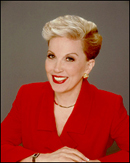
Way, way back when I was expecting my first child, “Natural Childbirth” was all the rage. We women were supposed to free ourselves of the tyranny of the medical establishment, reclaim our bodies and enjoy the experience of bringing a child into the world without any drugs, all on our own. Well, we could have our husbands nearby, as coaches, but the doctor and nurses were just supposed to be in awe of us as we brought our young ‘uns into the world without their help. It was supposed to be this joyous, amazing experience, available to any woman, any woman ready to throw off the shackles of the oppressive male dominated medical system.
I bought into that construct with all my young enthusiastic heart. After all, if I was going to be the mother of a dozen children, this would be the way to go, right.
So I got pregnant with my first child, and everything went great. Until my due date, in the middle of the summer. Simmering in a 3rd floor apartment, I canned apricots and the day passed uneventfully, except for the men walking on the moon. Two weeks later, I was still pregnant and miserable and hot and not sleeping. On a Thursday morning I went in to see my doctor, tired and crabby and ready to have this baby. I was having contractions, but after one false alarm at the hospital, I was waiting to get my doctor’s OK before going in again. If nothing happened by Friday, go in on Friday night, he said. I went in on Friday night, having good contractions and they put me to bed to wait and see what would happen. Finally, late Saturday night, they decided to do a C-section and get the kid out of there. I woke up a few hours later, hurting and got to see my 8 pound 10 ounce baby boy, who could never have survived a “Natural” delivery. His two brothers and sister also came into the world that way.
I had a condition called “non-progressive” labor, due to some anatomical issues.
Now what has this got to do with careers? Well, we often get the idea that there is only one way to hunt for a job and we wear ourselves out following that path, and sometimes, it seems as though we are in the throes of non-progressive labor ourselves. For those of you who have had to venture out into the job seeking world lately, it is not a pretty sight. There is new conventional wisdom that is being dumped upon us, new ways of finding a position and if you don’t get with the program, you will never get a job. After a while, it begins to sound like a broken record.
I agree that the least productive way of job hunting involves applying online and sending your résumé in response to a job posting. Yours will join the hundreds of others who are also sitting there. And I agree that agreeing to let someone in Bangalore represent me for a job some several thousand miles away is not the way to go either. But what about all the rest of the suggestions?
You go to job seekers meetings, week after week, month after month. You connect with recruiters and even get submitted for positions by some of them. You sign up on Linkedin and reconnect with all your old co-workers, employers and anyone else who wants to. You go to focus groups. You join any association remotely connected with your field that may provide access to others. You clean up your web presence, getting rid of any embarrassing photos. You rewrite your résumé five different times, trying to make it stand out. You email it to everyone you know. You attend some support meetings to commiserate with others, and find you could be going to many more of them throughout the week.
In short, you follow all the advice, and still nothing happens. Then you just burn out.
Just as I had had it when, after all those hours of labor, the doctors finally decided another course of action was needed to get results, some days you are ready to throw in the towel and give up.
This happened to a friend of mine last Friday. After a very stressful week, at the end of another job seekers networking meeting, she just had had it. She started crying and started verbalizing her complete frustration at the situation. She is one of the most talented people I know in her field, with a great job history. She is working for a local company for peanuts just to keep her name out there. Yet nothing is happening for her. In spite of all of her efforts, connections and hard work, she was completely frustrated. All I could do was to sit by her and listen. I could not offer any great advice, because I know just how she felt. Some other guy who knows her came by, with his comment that as tough as things were for her, his situation was much worse, he was sure. That was not the correct response in my book.
Oregon’s unemployment rate is higher than the national average. It’s a great place to live, and there is a well educated population here vying for jobs. These are unusual times, and even though there seems to be some light at the end of the tunnel, it hasn’t trickled down to some areas yet. There are still those hiring managers who believe that developers can develop, debug, test and document their creations, since they created the applications (Right!). When will there be a turnaround and our phones start ringing with recruiters at the other end who have real jobs in real companies? I have no idea.
In the mean time, my friend and I just put one foot in front of the other and know that we are there for one another. We know that when we reach the end of our rope, the phone may still not ring, because right now, not much is out there.
It will pass. Things will get better, but right now we aren’t seeing much action. Lots of words are out there, too many to absorb, but no jobs.




 Another member of our CC Writer’s focus group has found employment. That means three out of the nine of us are working now. C had worked several contracts at Intel before and they wanted her back.
Another member of our CC Writer’s focus group has found employment. That means three out of the nine of us are working now. C had worked several contracts at Intel before and they wanted her back.
